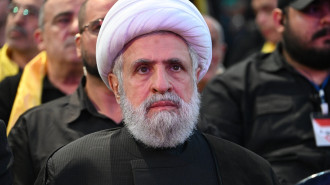Revolutionary days and nights promised in Egypt
Amid the protests and celebrations of the 25 January revolution that overthrew Hosni Mubarak four years ago, came a spike in militant attacks on security forces.
Among those targeted were police chiefs in several provinces by newly formed armed groups. They also used agressive tactics to block roads and set up barricades.
Like the old adage that violence breeds violence, many are seeing the years of police brutality and harassment as the trigger for transforming peaceful protesters into violent young men.
From the evidence we have so far, these militants are not part of any extremist Islamist movement. But the question remains about who is behind these groups - and is their emergence only connected to the anniversary of the revolution, or is it part of something bigger?
Interference
A group calling itself the Popular Resistance Movement announced its members had hampered the progress of security forces on Sunday.
"We engaged the black-hearted killers in their dens of shame known as police stations where they take part in all known crimes against humanity," read a statement from the group.
The Popular Resistance Movement promised more actions in the coming "revolutionary nights and days" until the overthrow of Abel Fattah al-Sisi.
Another group, using the name "Revolutionary Punishment", attacked a police patrol in Beni Suef on Sunday morning. A number of police officers were wounded in the attack.
The group also clashed with police at a village ring road, killing two members of the Egyptian Special Forces. Revolutionary Punishment also claimed responsibility for throwing a bomb and sound grenades at a security building next to Sayyida Zainab metro station in Cairo.
'Jungle state'
Mustafa al-Badri, a Salafi leader, and the event coordinator for the Anti-coup Alliance in Turkey, said that Sisi had created a "jungle state" by using his powers illegally.
| We engaged the black-hearted killers in their dens of shame known as police stations. - Popular Resistance Movement |
"Blood has been spilt, people's honours violated and sanctities attacked without any laws to deter criminals or fair judges to bring people to justice," he said.
Badri said that, due to the violent nature of the regime, particularly towards dissenters, no one could take away the right of Egyptians to self-defence.
Newly emerged militant groups, such as Revolutionary Punishment and the Popular Resistance Movement, are driven by personal motives not by political powers, he said.
"The continuity of such groups is significantly correlated to achieving their goals and their ability to continue their mobility in the face of the state's massive oppressive apparatus," he added.
"I believe these groups will have popular support, which will ensure their continuity and growth."
Last resort
Kamal Habib, a writer on extremist groups, said it was unsurprising that protesters resorted to violence on the anniversary of the revolution against Mubarak.
"The nature of 25 January brings more violence than any other day due to the sense of failure in achieving the goals of the revolution," he said.
Groups who bombed public facilities and infrastructure were not "jihadi" in nature, he said, and it remains too early to speculate whether this is part of a wider campaign of violence against the state.
"While the groups that have emerged now are not 'jihadi' we can only judge or analyse them if they continue their operations," Habib explained.
From peace to war
Habib believes that more and more anti-coup groups will be pushed to violence after seeing comrades killed by security forces and a lack of any tangible peaceful solutions.
Amgad al-Gabbas, a political analyst, said the escalation will have a negative impact on the anti-coup movements.
"It will push security forces to use excessive violence on a large scale in the coming phase, benefiting from the support of the media," Gabbas told al-Araby.
"The Egyptian people will react to such groups, who are targeting public facilities, with anger and rejection - either because the people oppose such operations, or because this will disrupt their lives and destroy public infrastructure and institutions."
This article is an edited translation from our Arabic edition.

![Palestinians mourned the victims of an Israeli strike on Deir al-Balah [Getty]](/sites/default/files/styles/image_684x385/public/2024-11/GettyImages-2182362043.jpg?h=199d8c1f&itok=xSHZFbmc)


![The law could be enforced against teachers without prior notice [Getty]](/sites/default/files/styles/image_684x385/public/2178740715.jpeg?h=a5f2f23a&itok=hnqrCS4x)
 Follow the Middle East's top stories in English at The New Arab on Google News
Follow the Middle East's top stories in English at The New Arab on Google News


